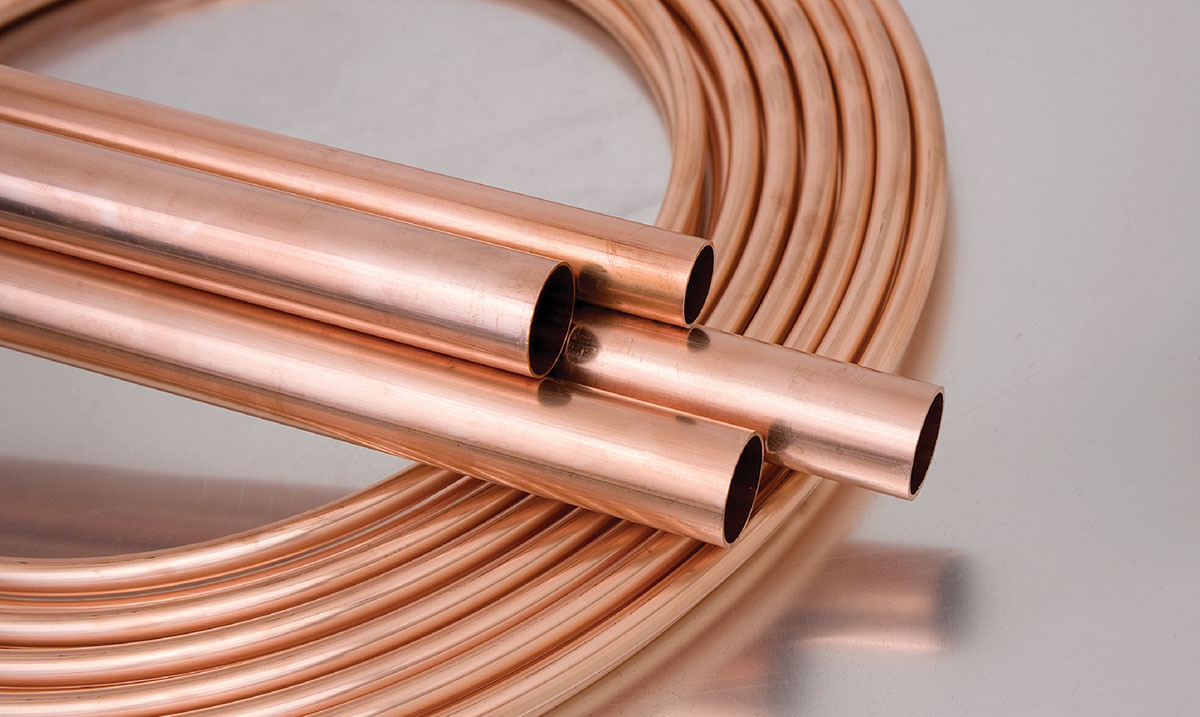Explore the Perks of Using High-Quality Copper Products for Home and Market
Explore the Perks of Using High-Quality Copper Products for Home and Market
Blog Article
Checking Out the Diverse Applications of Copper Products in Modern Industries
Copper items have actually developed themselves as crucial elements throughout a myriad of contemporary industries, mainly as a result of their amazing conductivity, pliability, and resistance to deterioration. From enhancing the performance of electrical systems to playing a critical duty in renewable energy innovations, the adaptability of copper is apparent. In addition, its recyclability settings it as a sustainable option in production and electronic devices. As industries significantly focus on innovation and sustainability, the diverse applications of copper necessitate a closer assessment, particularly regarding their prospective effect on future technological developments and environmental techniques.
Electrical Applications of Copper
Copper is an important product in the electric market, accounting for approximately 60% of the complete demand for non-ferrous steels worldwide - Copper Products. Its premium electric conductivity, which is virtually twice that of light weight aluminum, makes it the recommended option for a vast array of electric applications. From circuitry systems in domestic and commercial buildings to high-voltage power transmission lines, copper guarantees efficiency and integrity in electricity shipment
Along with circuitry, copper is integral to the production of electrical components such as transformers, generators, and motors. These components take advantage of copper's thermal conductivity and malleability, essential for warmth dissipation and reliable performance. Additionally, copper's resistance to deterioration boosts the life-span and longevity of electrical systems, making it an economical service in the long term.
The growth of renewable resource resources, such as solar and wind power, has actually better enhanced the need for copper in electrical applications. As industries shift towards sustainable power solutions, copper's function ends up being much more important. In general, the adaptability and efficiency features of copper solidify its status as a cornerstone material within the electric sector, driving technology and efficiency across numerous applications.
Plumbing and Piping Solutions
In modern pipes systems, the option of materials substantially impacts both functionality and long life. Copper has actually emerged as a preferred option due to its special residential properties, including deterioration resistance and antimicrobial features. These characteristics guarantee that copper piping remains risk-free and long lasting for carrying drinkable water, an important consideration in residential and industrial applications.
Among the essential advantages of copper in pipes is its capability to stand up to high temperature levels and stress, making it suitable for a range of applications, from warm water systems to home heating and cooling down networks. Furthermore, copper's versatility permits for much easier installment in complicated piping designs, reducing the danger of leakages and failings.
Another noteworthy benefit is copper's long life-span, usually going beyond 50 years with appropriate maintenance. This longevity not only lessens substitute costs yet additionally adds to sustainable practices by minimizing waste. Additionally, copper's recyclability straightens with modern environmental criteria, promoting a round economic climate within the pipes sector.
Copper in Renewable Power
The flexibility of copper prolongs past plumbing applications, playing an important duty in the renewable power field. Its superb electrical and thermal conductivity makes it a necessary product in the manufacturing and circulation of renewable resource resources, especially solar and wind power. In solar panels, copper is used in solar cells and circuitry, facilitating reliable energy conversion and transmission. Its resistance to corrosion ensures long-lasting efficiency, which is crucial for making the most of power result gradually.

Moreover, as the worldwide need for electrical automobiles (EVs) increases, copper's function in battery systems and billing facilities comes to be even a lot more substantial. The material's ability to perform electrical energy efficiently is indispensable to the performance of EV batteries, improving range and charging speed.
Copper's Duty in Electronics
Electronic devices manufacturing relies greatly on copper's phenomenal properties, specifically its high electric conductivity and thermal efficiency. These features make copper an optimal option for a wide variety of electronic components, including adapters, circuit boards, and wiring. The metal's capacity to effectively transmit electrical signals makes certain minimal energy loss, which is vital in high-performance digital tools.
In addition, copper's thermal conductivity plays a considerable function in warm dissipation, securing sensitive parts from overheating. This is specifically important in modern-day electronic devices, where compact designs cause boosted heat generation. Copper is additionally favored for its pliability and ductility, enabling it to be quickly shaped right into elaborate designs that meet the needs of innovative digital applications.
With the surge of consumer electronics, telecommunications, and electrical vehicles, the need for copper in the electronic devices industry continues to grow. Hence, copper remains a cornerstone material in the ever-expanding field of electronics.
Cutting-edge Utilizes in Manufacturing

One noteworthy application is in additive manufacturing, where copper-based products are employed in 3D printing processes. This enables for the development of lightweight elements and intricate geometries, particularly in the aerospace and automotive industries. Furthermore, copper's thermal conductivity view website makes it an ideal option for heat exchangers, boosting efficiency in industrial air conditioning systems.
In addition, the increase of wise manufacturing has seen the incorporation of copper in IoT gadgets, where its conductive capabilities sustain sophisticated noticing innovations. In the world of sustainable energy, copper is essential in the production of photovoltaic panels and wind generators, facilitating a lot more efficient energy conversion and distribution.
As sectors strive for sustainability and technology, copper's convenience and performance proceed to place it as a vital material, driving improvements in production and contributing to the growth of smarter, much more efficient items.
Verdict
The i was reading this integral function of copper in sustainable power and its essential function in electronics highlight its significance in advancing sustainable techniques. Collectively, these applications show copper's critical payment to technical progress and industrial efficiency in contemporary society.
From boosting the efficiency of electric systems to playing an important duty in renewable energy technologies, the adaptability of copper is apparent. As markets increasingly focus on development and sustainability, the diverse applications of copper warrant a closer evaluation, especially regarding their potential influence on future environmental methods and technological developments.
The development of eco-friendly energy sources, such as solar and wind power, has actually even more boosted the demand for copper in electrical applications. On the whole, the convenience and efficiency qualities of copper strengthen its status as a foundation material within the electric market, driving advancement and performance throughout various applications.
The adaptability of copper expands past plumbing applications, playing an important duty in the renewable power industry.
Report this page